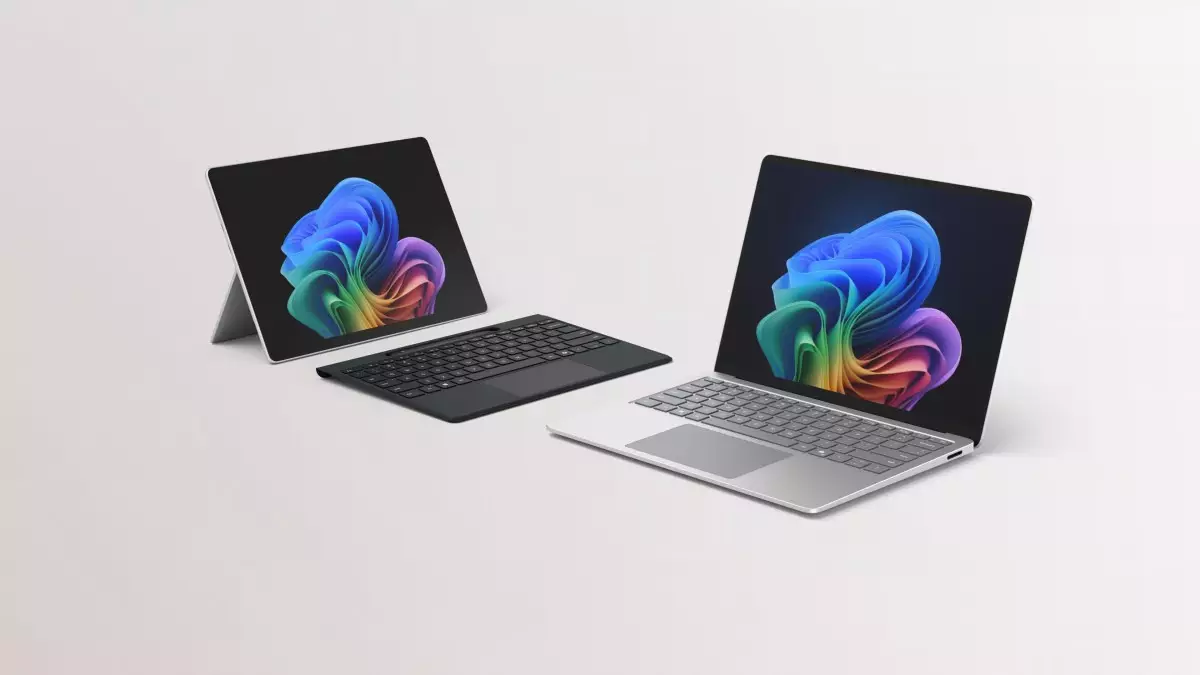Microsoft recently hosted a high-profile event in New York City where they unveiled the latest additions to their Surface line of personal computers: the Surface Pro and Surface Laptop. This announcement is significant, not just for its hardware updates but also for the integration of the Copilot+ PC certification. This program is part of Microsoft’s ongoing effort to embed artificial intelligence more deeply into the Windows 11 operating system, generating excitement for businesses and tech enthusiasts alike.
The Copilot+ PC certification is a new initiative that signifies devices that are optimally designed for Microsoft’s AI platform, Copilot. Announced earlier in May 2024, this certification is aimed at showcasing products that can efficiently support and enhance the user experience with AI features. The roll-out of the new Surface devices comes amidst a surge of computers certified under this program, indicating a broader industry trend towards acquiring AI-capable systems. Major players like Acer, Asus, Dell, HP, and Lenovo have all introduced their own Copilot+ PCs, demonstrating a collective push towards integrating advanced AI capabilities in business-focused hardware.
The hallmark of the Copilot+ certification is the inclusion of a neural processing unit (NPU), which enables features such as Live Translation, Super Res, Recall, and Studio Effects to be performed directly on the device. This development signifies a significant shift in the operational capabilities of personal computers, moving towards a future where processes traditionally dependent on server-side resources can be executed locally, thus enhancing performance and user experience.
The new Surface Pro and Surface Laptop are powered by two processor options: the Intel Core Ultra (Series 2) and the Snapdragon X processor. This variety allows users to balance their needs between performance and battery life, as the Snapdragon option promises an impressive multi-day battery use on a single charge. In contrast, the Intel processors, while shorter on battery longevity, offer significant performance improvements—up to a 28% boost in CPU performance and a remarkable 98% enhancement in graphics performance, according to the company’s claims.
However, the Snapdragon processor, designed with an eight-core architecture and a dedicated NPU for managing AI tasks, enhances the overall user experience when running AI-intensive applications. Despite potential performance trade-offs, Microsoft reassures that Copilot functionalities should remain solid across both setups. This ensures that businesses and individual consumers can choose a configuration that best suits their workflow, whether prioritizing efficiency or processing power.
A standout feature on the horizon for the Surface Laptop for business is the introduction of 5G connectivity. Slated for rollout later this year, this adds a crucial layer of modernity and adaptability to the device. As cloud-based processes often require significant resources, continuous connectivity becomes vital to ensure that Copilot functionalities are accessible without interruption. By incorporating 5G, Microsoft aims to offer a seamless experience where AI capabilities can be maximized both locally and in conjunction with the cloud.
The recent developments in the AI sector, particularly with companies like DeepSeek and Apple, emphasize the growing need for lightweight AI models capable of operating effectively on personal devices. Microsoft’s focus on combining powerful on-device capabilities with consistent network access indicates a strategic approach where users can seamlessly tap into AI resources.
The Surface Pro features a 13-inch display with optional OLED enhancement, additionally incorporating built-in NFC reader capabilities to support modern security keys, including those from YubiKey. The Surface Laptop will be available in two sizes, catering to diverse consumer preferences. With a starting price of $1,500 for the Intel models—a $400 difference over the Snapdragon versions—the pricing strategy reflects a premium for the enhanced capabilities of the more powerful processors.
In tandem with these product launches, Microsoft also announced the release of a new USB4 Dock priced at $200, designed to expand connectivity options, including multiple USB-C and USB-A ports, Ethernet, and HDMI support. The comprehensive approach to hardware ecosystem enhancement ensures that users have access to the modern conveniences they are accustomed to, without sacrificing power or functionality.
Microsoft’s latest Surface announcements showcase a clear commitment to advancing hardware capabilities accompanied by robust AI integration. As organizations and users alike prepare for a future dominated by intelligent systems and cloud computing, the new Surface products embody a timely representation of this increasingly complex landscape.

